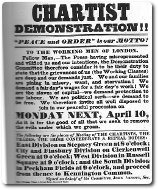Jane Eyre Contents
- Social / political context
- Educational context
- Religious / philosophical context
- Literary context
- Note on chapter numbering
- Volume 1 / Chapters 1 - 15
- Volume 1: Dedication and Preface
- Volume 1, Chapter 1
- Volume 1, Chapter 2
- Volume 1, Chapter 3
- Volume 1, Chapter 4
- Volume 1, Chapter 5
- Volume 1, Chapter 6
- Volume 1, Chapter 7
- Volume 1, Chapter 8
- Volume 1, Chapter 9
- Volume 1, Chapter 10
- Volume 1, Chapter 11
- Volume 1, Chapter 12
- Volume 1, Chapter 13
- Volume 1, Chapter 14
- Volume 1, Chapter 15
- Volume 2 / Chapters 16 - 26
- Volume 3 / Chapters 27 - 38
Jane Eyre: The critical tradition
Established approaches to the novel
Jane Eyre, as well as being popular with readers, has always attracted a good deal of attention from academic critics, and until about thirty years ago the following ways of ‘reading' the novel were the most common:
- As a realistic representation of individual experience, concentrating on Brontë's creation of a convincing central character offering a true representation of her social and emotional experience
- As a moral fable, emphasizing the pilgrimage that Jane undertakes in the course of the novel, the temptations and setbacks that she encounters, and her eventual attainment of marriage and happiness
- As a romantic love story perhaps containing an element of wish-fulfilment on the part of its author
- As a critique of certain social evils, particularly those concerning the treatment and education of children
- As a comment on some forms of Christianity, again focused on education.
Initial reception of Jane Eyre
When it was first published, Jane Eyre met with a mixed reception.
Positive reviews
Most of the reviews welcomed the novel as representing a bold new voice in fiction:
The novel was valued for its realism, its strength of feeling and the sense that, although it told the story of only one person, it spoke to the experience, hopes and disappointments of many.
Negative reviews
Other commentators, especially those in the religious and conservative press, were less satisfied with what they read as the message of the novel and felt that it set a dangerous precedent:
By using the word ‘Jacobinism', the reviewer is evoking the French Revolution of 1789, when the Jacobins were the most extreme of the radicals.
Contemporary unrest
The suggestion that a story of one young woman's life might herald some sort of political upheaval might seem exaggerated to twenty-first century readers, but we have to remember that the novel appeared at a  time of considerable political unrest, both at home and in Europe:
time of considerable political unrest, both at home and in Europe:
- The 1840s in England had been marked by the growth of Chartism, a working-class movement with a radical agenda for political change, which included the extension of the franchise and payment for Members of Parliament so that Parliament might become more representative of the population as a whole
- In the years 1846-48, there were revolutions or other action by subversive groups in various European countries, including France, Italy, Austria, Prussia and Poland. It was feared that, in the wake of the Chartist unrest, Britain might be the next country to experience a popular uprising. It is in this context that the following extract should be read:
- List the main reasons for Lady Eastlake's objections to Jane Eyre.
- What does this passage say about Lady Eastlake's social standing and political opinions?
Recently Viewed
-
Jane Eyre » Jane Eyre: The critical tradition
now -
Wuthering Heights » The influence of Christianity
1 minute ago -
The Second World War
12 minutes ago -
Wilfred Owen, selected poems » Wild with All Regrets - Language, tone and structure
18 minutes ago -
Wilfred Owen, selected poems » Insensibility - Language, tone and structure
18 minutes ago -
Dickens' Great Expectations - chapter 3 - intertextuality audio visual resource
30 minutes ago -
John Webster's The White Devil - Act 5, scene 2 - intertextuality audio visual resource
30 minutes ago -
Wilfred Owen, selected poems » War
49 minutes ago -
Wilfred Owen, selected poems » The Parable of the Old Man and the Young - Imagery, symbolism and themes
49 minutes ago -
Wilfred Owen, selected poems » S.I.W. - Imagery, symbolism and themes
49 minutes ago -
Songs of Innocence and Experience » The spirit of rebellion - society
57 minutes ago -
Gerard Manley Hopkins, selected poems » Organising your time in exams
1 hour ago -
Gerard Manley Hopkins, selected poems » Themes in Spring and Fall
1 hour ago -
Gerard Manley Hopkins, selected poems » Themes in No Worst, There is None
1 hour ago -
King Lear » A moral ensemble story
1 hour ago -
Wilfred Owen, selected poems » Marxist criticism
1 hour ago -
Wilfred Owen, selected poems » Sonnet on Seeing a Piece of Our Heavy Artillery Brought into Action - Synopsis and commentary
1 hour ago -
Wilfred Owen, selected poems » Le Christianisme - Language, tone and structure
1 hour ago -
Wilfred Owen, selected poems » Greater Love - Language, tone and structure
1 hour ago -
Metaphysical poets, selected poems » At the Round Earth's Imagin'd Corners
1 hour ago -
Tess of the d'Urbervilles » Chapter 23
1 hour ago -
Wide Sargasso Sea » Creole identity and language
1 hour ago -
Atwood's The Handmaid's Tale - section 11, chapter 30 night - intertextuality audio visual resource
1 hour ago -
A-Z: Famous stories from the Bible » Jesus heals ten lepers
2 hours ago -
John Keats, selected poems » A worked example
2 hours ago
